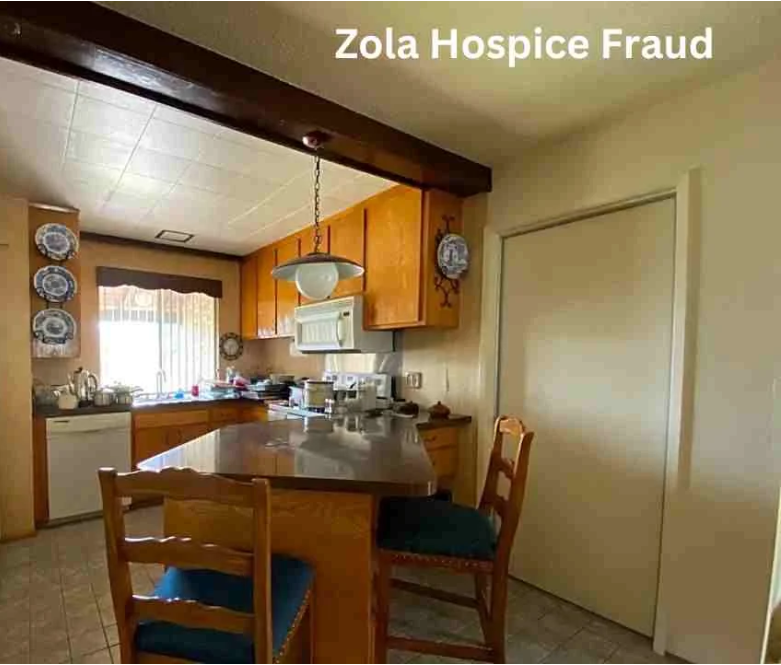Introduction to Zola Hospice
Welcome to the eye-opening guide that uncovers a dark shadow looming over the world of hospice care – Zola Hospice fraud. In this blog, we will delve into what hospice care entails, shed light on the alarming rise of Zola Hospice fraud cases, explore how this deceitful practice operates, and equip you with valuable insights on detecting and preventing potential scams. Let’s embark on this informative journey together to safeguard vulnerable individuals in their time of need.
What is Hospice Care?
Hospice care is a specialized type of healthcare that focuses on providing comfort and support to individuals facing terminal illnesses. It is designed to help patients maintain their quality of life by managing pain and symptoms, as well as offering emotional and spiritual guidance. Hospice care can be provided in various settings including at home, in hospitals, or in dedicated hospice facilities.
The goal of hospice care is not to cure the illness but rather to improve the patient’s overall well-being during their final stages of life. A multidisciplinary team consisting of doctors, nurses, social workers, counselors, and volunteers work together to ensure that the patient’s physical, emotional, and spiritual needs are met.
Hospice care also extends support to the patient’s family members by offering counseling services and bereavement support after the patient passes away. Hospice care aims to provide compassionate end-of-life care that prioritizes dignity and comfort for both patients and their loved ones.
The Rise of Zola Hospice Fraud Cases
Recently, there has been a concerning increase in Zola Hospice fraud cases across the country. These fraudulent activities have raised alarms within the healthcare industry and among patients and their families who rely on hospice care for comfort during challenging times.
The rise of Zola Hospice fraud cases highlights the importance of vigilance when it comes to choosing a hospice provider. It is crucial to thoroughly research and verify the credentials and reputation of any hospice organization before entrusting them with your loved one’s care.
Patients and their families must be aware of the potential signs of fraud, such as overbilling, unnecessary services, or lack of proper documentation. By staying informed and observant, individuals can help detect suspicious behavior early on and prevent falling victim to fraudulent practices.
As authorities work towards combating Zola Hospice fraud, it is essential for everyone involved in hospice care – from providers to patients – to remain vigilant and proactive in safeguarding against deceptive schemes that jeopardize both financial resources and quality end-of-life support.
How Does Zola Hospice Fraud Work?
Zola Hospice Fraud operates in a deceitful manner by manipulating billing practices and falsifying patient records to maximize profits. The fraud may involve charging for services not rendered, inflating the length of stay or level of care needed, or even enrolling patients who do not meet hospice eligibility criteria.
In some cases, Zola Hospice Fraud schemes may involve kickbacks or illegal referral fees to healthcare providers for patient referrals. This unethical behavior puts vulnerable patients at risk and exploits the trust placed in hospice care providers.
Fraudulent activities can also include overmedicating patients to keep them sedated and reduce costs, neglecting essential services such as pain management or emotional support, and engaging in deceptive marketing tactics to attract more clients.
By understanding how Zola Hospice Fraud works, individuals can be vigilant in identifying potential red flags and taking action to protect themselves or their loved ones from falling victim to these dishonest practices.
Signs of Potential Zola Hospice Fraud
When it comes to potential Zola Hospice fraud, there are some red flags to watch out for. One sign could be if the hospice facility is pressuring you or your loved one into unnecessary services or treatments. Another indicator might be if there are inconsistencies in billing statements, such as charges for services not rendered.
Pay attention to any sudden changes in the quality of care being provided by the hospice staff. If you notice unexplained delays in communication or lack of transparency regarding treatment plans, it’s important to investigate further. Keep an eye out for any unusual financial transactions or requests for personal information that seems unnecessary.
Trust your instincts and seek a second opinion if something doesn’t feel right. Stay vigilant and don’t hesitate to ask questions or voice concerns about the care being provided. It’s crucial to stay informed and proactive when it comes to protecting yourself and your loved ones from potential fraud within the healthcare system.
Steps to Take if You Suspect Zola Hospice Fraud
If you suspect Zola Hospice fraud, it’s essential to take immediate action. First, gather any evidence or documentation that supports your suspicions. This could include billing statements, communication records, or any unusual behavior by hospice staff.
Next, consider reaching out to the appropriate authorities such as the local health department or state regulatory agency. They can investigate and take necessary steps to address the potential fraud.
Additionally, contacting a legal professional experienced in healthcare fraud can provide valuable guidance on how to proceed. They can help navigate the complex legal landscape surrounding these allegations.
It’s also crucial to report your concerns directly to Zola Hospice management. They have a responsibility to address any wrongdoing within their organization promptly.
Remember that speaking up about suspected fraud not only protects patients but also helps maintain integrity within the healthcare system.
What Can Be Done to Prevent Zola Hospice Fraud in the Future?
To prevent Zola Hospice Fraud in the future, it is crucial for both individuals and regulatory bodies to stay vigilant. Conducting thorough research before selecting a hospice provider can help identify any red flags or potential risks. It’s essential to ask questions about their credentials, reputation, and past performance.
Moreover, promoting transparency within the healthcare system can also deter fraudulent activities. By encouraging open communication between patients, families, caregivers, and hospice providers – accountability increases across the board. Additionally, implementing regular audits and reviews of hospice facilities can help detect any irregularities or inconsistencies in billing practices.
Furthermore, educating the public about common signs of fraud and how to report suspicious behavior is key in preventing future incidents. Awareness campaigns highlighting warning signals such as overbilling, unnecessary services being provided or lack of proper documentation are essential for early detection.
By fostering a culture of integrity and accountability within the healthcare industry as a whole – we can collectively work towards reducing the occurrence of Zola Hospice Fraud moving forward.
Conclusion
Understanding Zola Hospice fraud is crucial in safeguarding the well-being of vulnerable individuals and preventing financial exploitation. By educating yourself on the signs of potential fraud, taking proactive steps if you suspect any wrongdoing, and advocating for stricter regulations and oversight in hospice care, we can work together to ensure that those in need receive genuine support and compassion during their most challenging times. Stay vigilant, stay informed, and be a voice for those who may not be able to speak up for themselves. Together, we can make a difference in the fight against Zola Hospice fraud.







